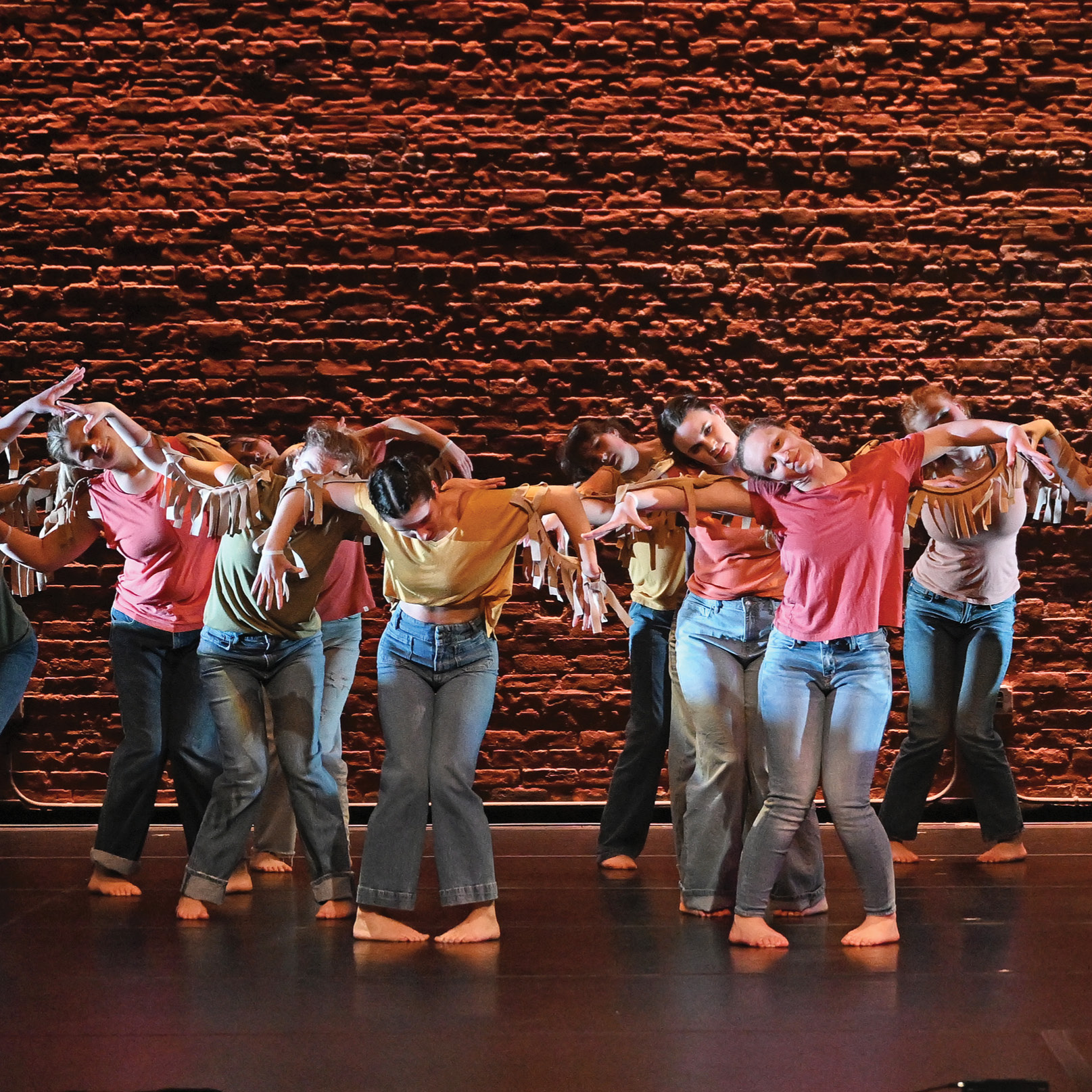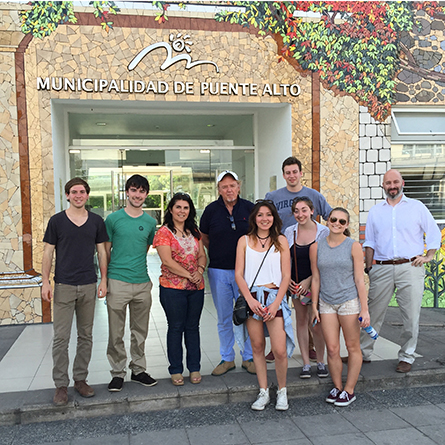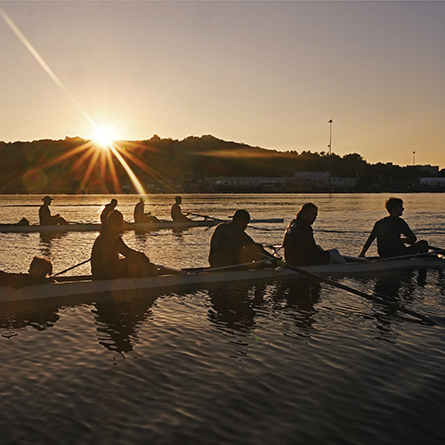
Students travel to Chile as part of their Latin America democracy class

Students traveled to Chile over winter break as part of their “Democracy in Latin America” class. The journey was part of the Traveling Research and Immersion Program, a course-related, faculty-led trip designed to give students hands-on experience that complements the work they do in the classroom.
Leading the trip to Chile was Alex Roberto Hybel, the Susan Eckert Lynch ’62 Professor of Government and International Relations. Hybel, a native of Argentina, has taught “Democracy in Latin America” for 20 years and once took students enrolled in the course to Bolivia. He also led a TRIP to Tokyo, Seoul and Beijing as part of a first-year international relations course.
Hybel’s students analyzed the history—and political, social and economic conditions—of seven Latin American states to understand the underlying problems each country has grappled with throughout their transitions to democracy. During the trip to Chile, the students were able to meet active politicians and diplomats, including Senator José Manuel Ossandón and Ambassador Juan Somavía.
“When the students met with Senator Ossandón, they were speaking with an individual who for many years had been the mayor of a very poor municipality and is now a senator prepared to run for president,” Hybel explained. “Ambassador Somavía, on the other hand, is a diplomat who held very important posts as Chile's representative to the U.N., and is deeply committed to human development. Ossandón and Somavía stand at opposite ends of the ideological spectrum. Students spoke with both of them and got a sense of how much they disagreed about how to address Chile's main political, social and economic problems.”
These firsthand experiences were made possible by Hybel’s connections, according to Zander Mintz ’17, a double major in international relations and Latin American studies.
“If Professor Hybel did not have his connections, I do not know if we could have actually seen the things that we were able to see or learn about Chilean politics and history in the depth and breadth that we did,” Mintz said. “Much of the trip was spent meeting with high-ranking government officials and politicians to discuss Chilean political history and the problems that the nation faces today that seem to inhibit further democratization.”
Hybel’s students were also able to engage with every-day Chilean citizens and gain an appreciation for the harsh conditions under which many of them live.
“None of the students had ever witnessed firsthand the abject poverty they saw when we visited markets in the municipalities,” said Hybel. “Conditions and the people who shop there are very different from those one finds in a supermarket. Every day, students were exposed to what it means to be a ‘Chilean.’ You don't get that experience in a class.”
For Mintz, the trip gave him the opportunity to also appreciate the beauty of the country.
“By the end of the trip, I came away with not only a deeper understanding of the political system and the internal political arena, but also a great appreciation for Chilean culture, its fine cuisine, it’s amazing people and of course, its breathtaking landscape.”
February 1, 2016
